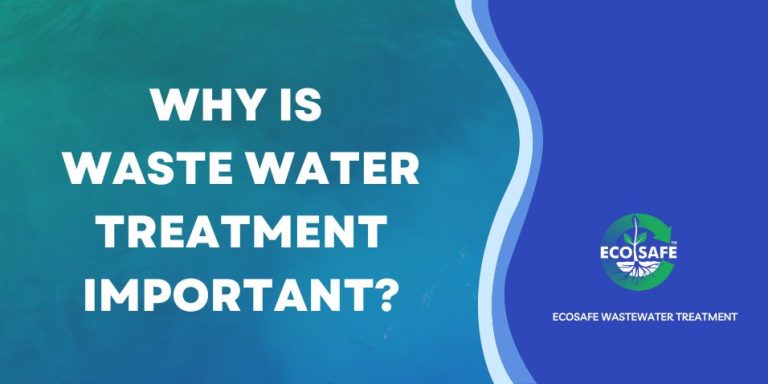Get This Report on Reclaim Waste
Get This Report on Reclaim Waste
Blog Article
All About Reclaim Waste
Table of ContentsReclaim Waste - The FactsThe 5-Second Trick For Reclaim WasteThe Main Principles Of Reclaim Waste An Unbiased View of Reclaim WasteHow Reclaim Waste can Save You Time, Stress, and Money.
Check out the types, incidents, and types of liquid waste. Domestic sewage waste refers to the waste and items from a residential septic system. This kind of waste is produced by humans in residences, institutions, and various other structures. This only includes septic containers that have a drainpipe field. The proper monitoring and disposal of domestic sewer waste require fluid waste to be transferred to a sewer treatment plant where the correct methods and tools are related to purify and get rid of waste.
Business waste often consists of potential hazards, such as combustible materials or a blend of fluid and solid waste products, and needs a more sophisticated and detailed disposal process. The disposal of industrial waste typically includes the filtering of waste prior to transport to guarantee secure and proper disposal. Industrial waste is produced from results and drainage of industrial processes and manufacturing.
This sort of waste can not use the exact same sewer management transport or processes as septic or commercial fluids. The hazardous waste monitoring process calls for the evaluation and testing of liquid waste prior to it undertakes the disposal procedure (liquid waste removal). Drainage waste is the fluid waste that originates from drainage and excess stormwater in very booming areas or cities
Runoff waste can trigger contamination and flooding if not managed correctly. Making certain appropriate waste administration can stop calamities and lower ecological injury.
The 9-Minute Rule for Reclaim Waste
Contact PROS Providers today to find out about our waste administration and disposal services and the appropriate means to take care of the liquid waste you generate.
(https://penzu.com/p/1f225eb6893bd9aa)Do you understand what occurs to your water when you disengage, purge the toilet or drain the cleaning maker? No? Well, it's worth knowing. This so-called 'wastewater' is not only a vital source however, after treatment, will certainly be launched to our land, waterways or the ocean. Used water from commodes, showers, baths, cooking area sinks, laundries and commercial processes is referred to as wastewater.

water made use of to cool down machinery or tidy plant and equipment). Stormwater, a kind of wastewater, Read Full Report is overflow that flows from farming and metropolitan areas such as roofing systems, parks, yards, roads, courses and rain gutters into stormwater drains pipes, after rain. Stormwater streams untreated straight to local creeks or rivers, at some point reaching the ocean.
Some Known Details About Reclaim Waste
In Queensland, the majority of wastewater is treated at sewage treatment plants. Wastewater is transported from domestic or industrial sites with a system of drains and pump terminals, referred to as sewage reticulation, to a sewer therapy plant. City governments develop, maintain and run most sewage treatment plants. Operators are certified under the Environmental Defense Act 1994 to release cured wastewater at an appropriate ecological criterion right into rivers.
The Department of Natural Resources encourages city governments about managing, operating and maintaining sewage systems and therapy plants. In unsewered locations, city governments may require homeowners to install individual or house sewer therapy systems to treat domestic wastewater from toilets, kitchen areas, shower rooms and washings. The Division of Natural Resources authorises using home systems when they are verified to be efficient.
A lot of stormwater obtains no treatment. In some brand-new communities, therapy of some stormwater to remove clutter, sand and crushed rock has started utilizing gross contaminant catches. Wastewater therapy happens in four phases: Eliminates solid issue. Larger solids, such as plastics and other things incorrectly discharged to sewage systems, are removed when wastewater is gone through displays.
Wastewater then moves into huge tanks where solids resolve and are eliminated as sludge. Oil and scum are skimmed from the surface area. Utilizes tiny living microorganisms called micro-organisms to break down and get rid of continuing to be dissolved wastes and great fragments. Micro-organisms and wastes are incorporated in the sludge. Gets rid of nitrogen and phosphorus nutrients that could create algal flowers in our rivers and threaten water life.
The 30-Second Trick For Reclaim Waste
Nutrient removal is not offered at all sewage treatment plants since it requires expensive specialised equipment. It is becoming a lot more usual in Queensland. Clear fluid effluent produced after treatment might still contain disease-causing micro-organisms. If this effluent is launched right into rivers such as rivers or the sea, the micro-organisms will at some point pass away out.

This typically indicates wastewater has to be treated or contaminants eliminated before it can be discharged to rivers. A lot of wastewater streams into the sewage system. Under the Act, regional governments administer authorizations and licences for environmentally pertinent activities (ERAs) entailing wastewater launches that might have a neighborhood effect. The department carries out authorizations and licences to Periods including wastewater launches that may have a regional or statewide impact.
The Definitive Guide for Reclaim Waste
Otherwise, samples are considered laboratory analysis. Often numerous examinations are required to establish the levels of each of the different toxins such as oils, hefty steels and pesticides in water. Tracking supplies valid information about water high quality and can validate that permit problems are being met. The information acquired via surveillance provides the basis for making water high quality choices.
Report this page